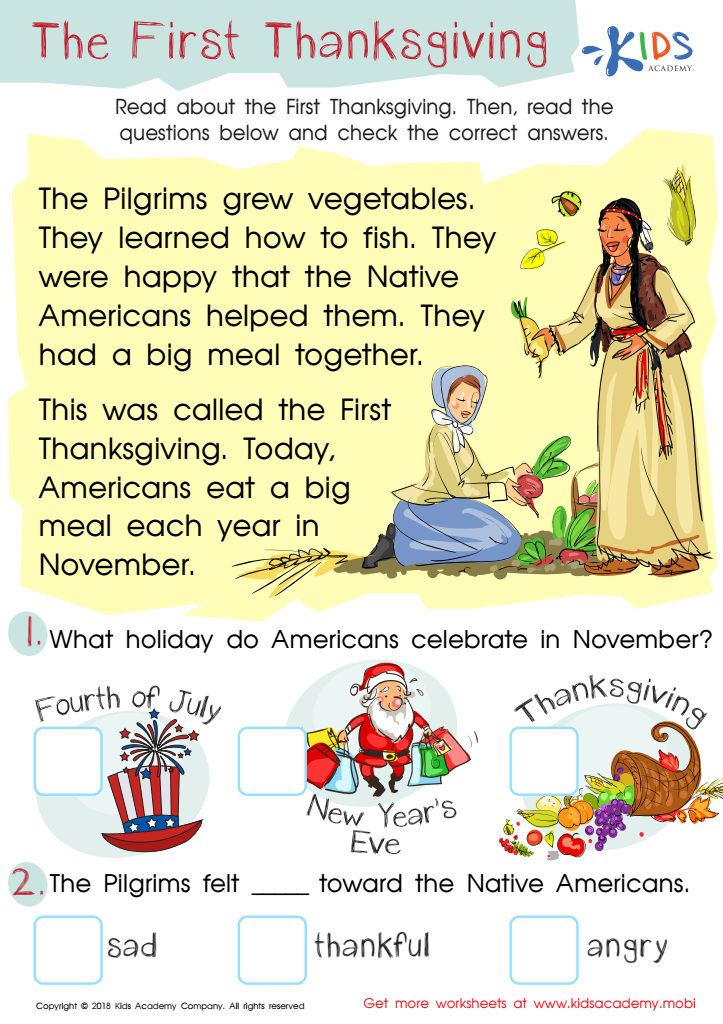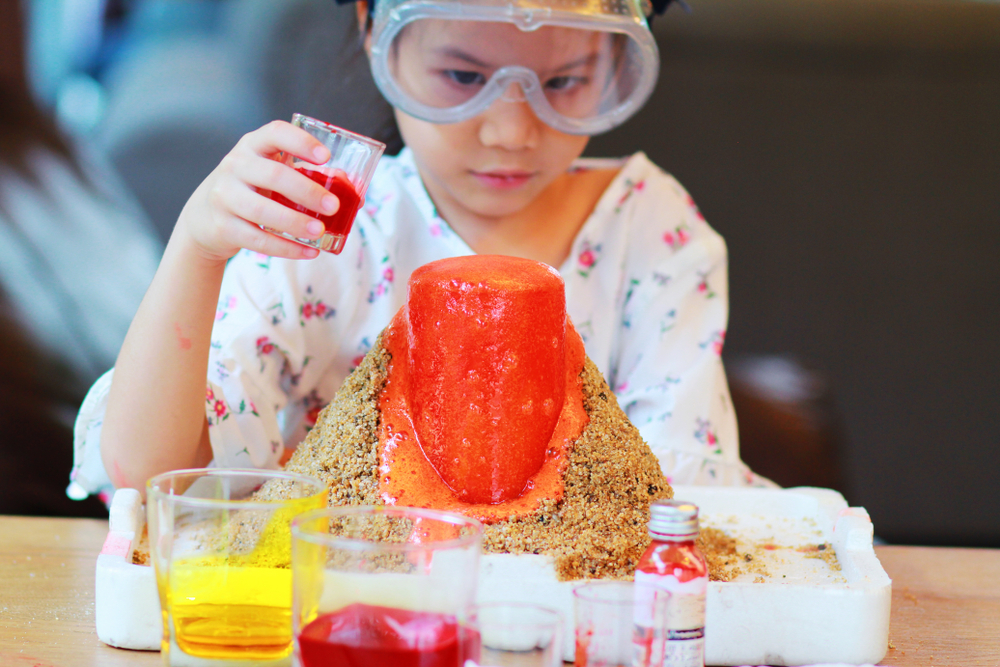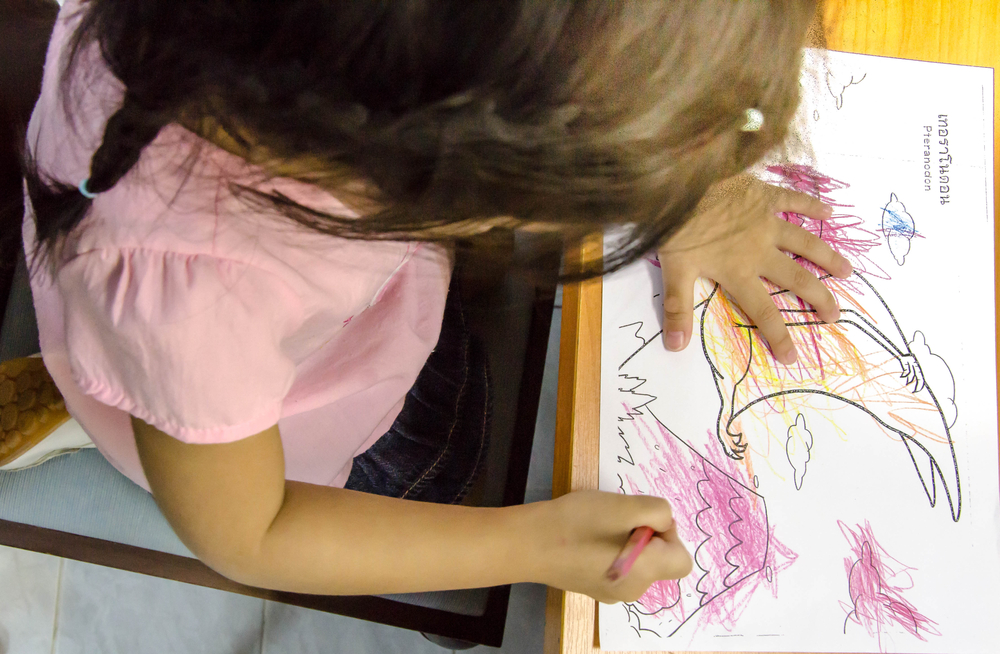Reading Non-Fiction worksheets activities for 7-Year-Olds
1 filtered results
-
From - To


Assessment: First Thanksgiving Worksheet
Reading Non-Fiction worksheets activities serve as essential tools in developing a wide range of skills for students of all ages. The incorporation of these resources into the educational curriculum brings a multitude of benefits, highlighting why they are incredibly useful.
First and foremost, Reading Non-Fiction worksheets activities help in improving comprehension skills. Non-fiction texts cover factual information about the world, from historical events and scientific discoveries to cultural practices and current events. Working through worksheets allows students to practice identifying main ideas, understanding cause and effect relationships, and distinguishing between facts and opinions. These critical reading skills are not only vital for academic success but are also indispensable in navigating the vast amount of information encountered in daily life.
Moreover, Reading Non-Fiction worksheets activities enhance vocabulary and language skills. Non-fiction texts are rich in specialized and technical language related to different fields of knowledge. Engaging with these texts through structured activities allows students to encounter and learn new words in context, expanding their vocabulary and understanding of language use. This linguistic expansion fosters better communication skills and aids in the comprehension of complex texts across disciplines.
Additionally, these activities encourage critical thinking and analytical skills. Through Reading Non-Fiction worksheets, students are often prompted to analyze the information presented, evaluate the credibility of sources, and synthesize data from various texts. This not only improves their ability to think critically about the information they consume but also prepares them to participate in informed discussions and make evidence-based decisions.
Finally, Reading Non-Fiction worksheets activities are adaptable to diverse learning styles and can be tailored to meet the individual needs of students. Whether through group discussions, individual research projects, or interactive online exercises, these activities can engage learners in multiple ways, ensuring that each student has the opportunity to succeed.
In conclusion, Reading Non-Fiction worksheets activities are invaluable in fostering comprehension, expanding vocabulary, encouraging critical thinking, and accommodating diverse learning styles. These benefits collectively contribute to developing well-informed, critical, and articulate individuals, equipped with the skills necessary for academic achievement and active citizenship.

 Assign to My Students
Assign to My Students






















